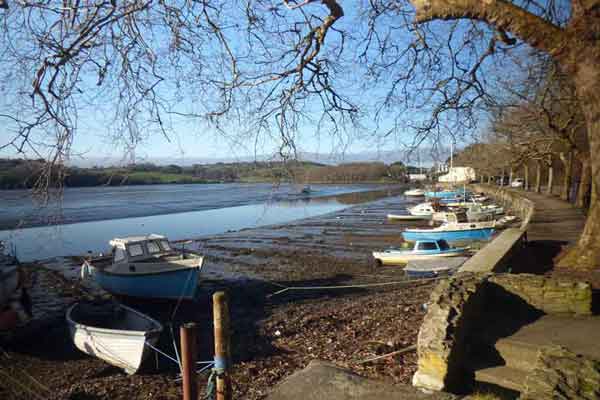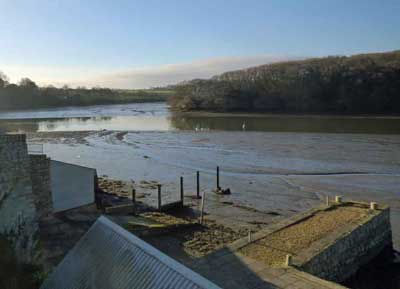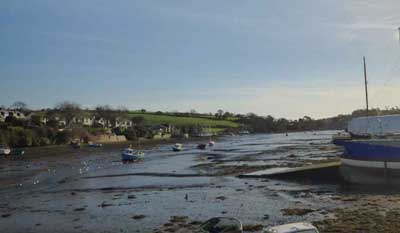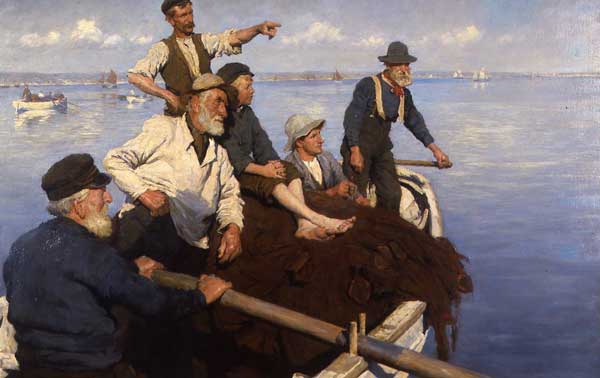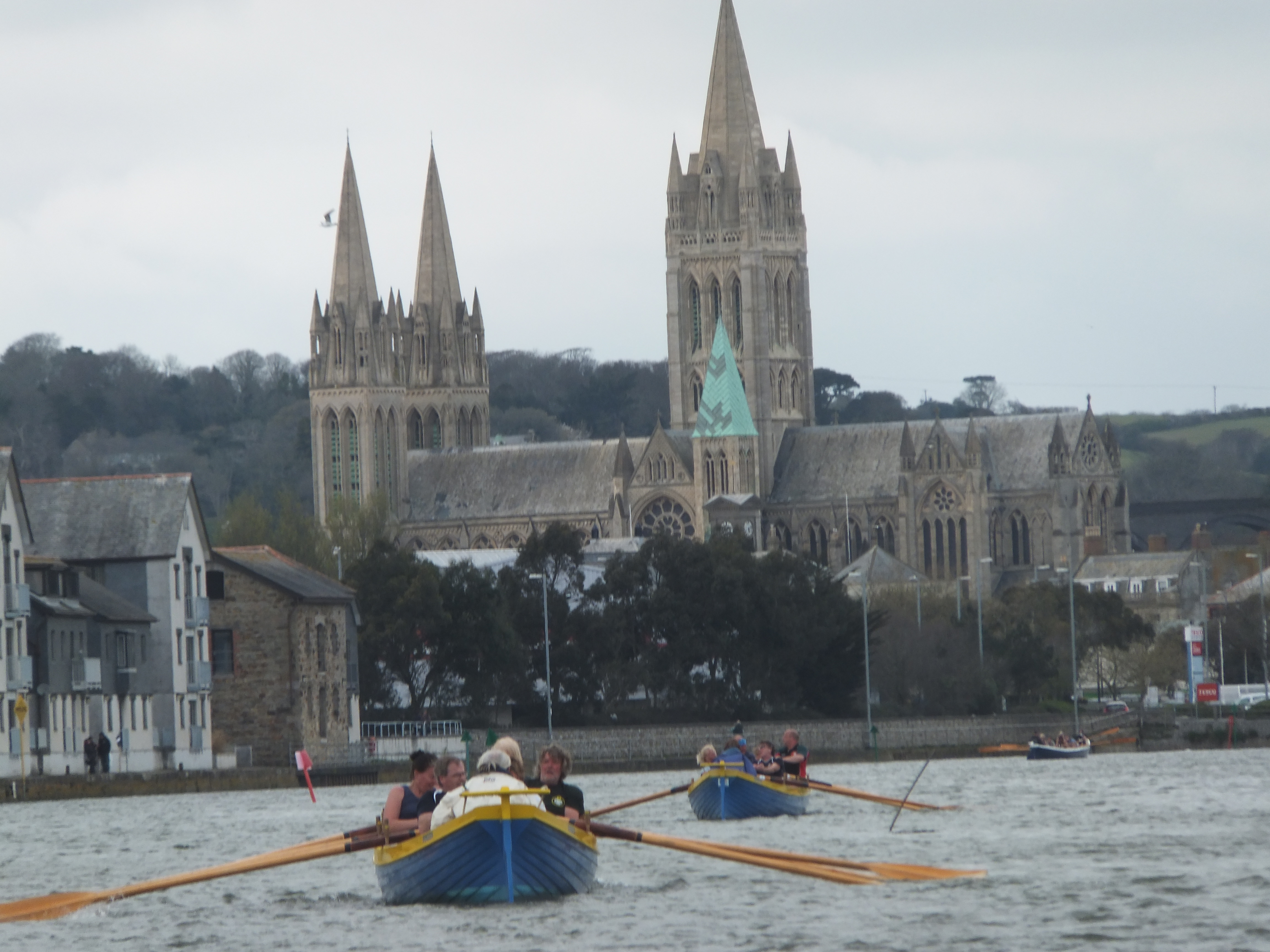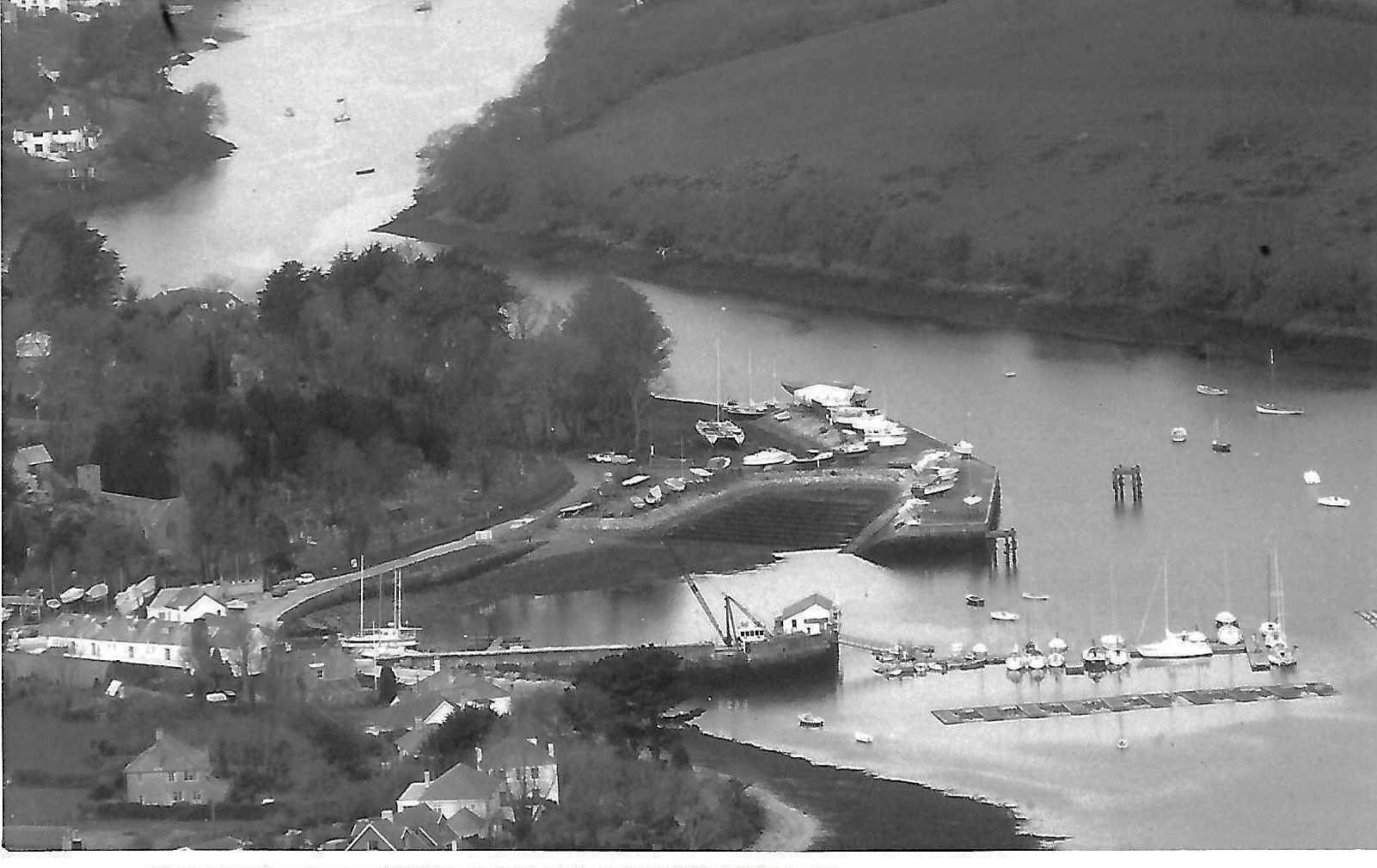Regattas held in the area go back at least to 1858, but their history is rather fragmented. Unless one of the local newspapers (Royal Cornwall Gazette, West Briton, etc.) picked up a report, it is likely details lasted no longer than the lifespan of their participants. But from time to time we are left with tantalising snapshots of events both familiar and distant. More recently, local history groups (notably through the auspices of the Feock Parish Council) have managed to record the memories of those involved. On the one hand this lacks the timeliness of a newspaper report, but is freed from the necessity of naming all the local worthies and often injects a more personal note.
Identifying the lineage of the present regattas presents some challenges. For example Point and Penpoll (thought to be established ‘by the 1850s’) could claim to be the descendant of what was once called Devoran, Point and Perranwharf Regatta. In 1877 the regatta at Feock went under the name of the Port of Truro Regatta, but by 1884 the Truro Royal regatta had returned to Sunny Corner. There are references to a regatta at Feock in 1858, but it is described as having ‘previously been held at Devoran’. At least Portscatho (established by 1874) has no such ambiguities. We also have a record of the 1836 Falmouth Regatta, but its focus was on the ‘Amazon Rowers of Saltash’, a group of ladies who competed (very successfully) in distinctive white dresses, caps and ribbons. These “female rowers” also feature briefly in the Court Journal of 1858.
But when we say ‘regatta’ in the 19th century we may be talking about something rather different to our present day regattas. The carnival spirit lives on, and the involvement of the whole community, but the content has likely changed. In particular, sailboat races were probably a very minor component. When racing is mentioned, it will almost certainly be rowing, whether in gigs (following the pilot gig tradition), or various fishing boats which were rowed.
Just how many local regattas were there? In the Feock Parish magazine, June–July 2019, Barry Champion wrote: “the St Feock and Pill Creek Regatta known locally as ‘Loe Beach Regatta’ (the oldest in Cornwall) was only one of the many regattas based in the Carrick Roads/Fal area. These included Truro (held at Sunny Corner), Malpas, Loe Beach, Devoran, Point/Penpol, Flushing, Falmouth, St Just and St Mawes.” Even this list may not be exhaustive, omitting Percuil, Portscatho and Mylor.
The Truro Regatta is no more, and Malpas, St Just and Mylor Regattas have all been extinguished. Recent attempts to revive the Falmouth Town Regatta by RCYC failed. Devoran may claim to have been absorbed into Point and Penpoll. Further afield, Helford Village Regatta (which includes Durgan) falls nominally within the PoFSA zone, but although it is a water-based event, there is no sailing. The accent is on swimming, rowing and paddling.
Truro
A Truro regatta was in existence in the mid 19th C, since a report in the Royal Cornwall Gazette from 1860 commented on the situation regarding racing gigs at the regatta. It may be that the regatta featured gigs and other rowed boats rather than sailing craft
A reflection of the fluidity of names can be seen when the regatta held at Loe in 1876 was proposed as “the old Truro Royal Regatta revived” and in the following year, 1877, the regatta at Feock went under the name of the Port of Truro Regatta. These may just be examples of the power of the brand name to attract the public! However it is said that the people of Truro never truly accepted the usurping of their name. After civic pride received a boost at the opening of the new Cathedral and the confirmation of City status, the Truro Royal Regatta returned to Sunny Corner in 1884.
Malpas
Malpas had an event in its own right, independent of Truro as a print from the early 1900s in the Royal Corwall Museum of a regatta shows. It is described as “A view of the river at Malpas with a gig, yachts, rowing boats and other small craft full of passengers during the regatta.” Another photograph from the same period shows some sort of gig at the same or a similar event. Another report says that in 1859 the Tregothnan and Malpas Regatta attracted large crowds on the riverbanks with music playing and flags flying.
Mylor
Mylor Regatta lasted until the late 20th C (at least 1987), according to the Book of Mylor, published in 2007.
Back in the 19th century it had been featured in the Cornishman. The event included races for the ‘Mosquito fleet’ of open sailing boats, rowing boats (and a donkey). And of course, fireworks.
Mylor Regatta
Friday afternoon found the little but picturesque and interesting village
of Mylor all alive. Bunting fluttering
in the breeze at various points indicated to the approaching stranger
that something of more than usual importance was taking place.
On nearing the village the inhabitants and their visitors
might have been seen in fair proportion along the shore while
a great many assembled on the beach opposite the
committee-boat, which was moored in mid-stream within a
few hundred yards of the bridge.
Mylor Creek, at the entrance of which is a little
Government dockyard, boasts of something like 66
acres of water at high tide; and here the afternoon
sport took place in full view of as many as felt
disposed to witness the proceedings. The amusements
were carried out in praiseworthy style by the committee
who were …
…
The proceedings, which had been throughout a source of thorough
enjoyment, were brought to a close amid the hiss of the rocket,
crack of the squib, and flare of blue lights.
Cornishman, Thursday 23 September 1880
The Book of Mylor also notes that “After the racing, pasties, heavy cake and cream teas were the order of the day… At one time the regatta was the highlight of the sailing calendar topped of by a dance in the Tremayne Hall…”
“Heavy” cake is better known locally as “hevva” cake, a reference to the once thriving pilchard industry and the cry raised when a shoal was spotted from the shore. And maybe (just maybe) the cream teas included split buns rather than scones.
The surviving (and thriving) Regattas
- Portscatho Regatta
- St Feock & Pill Creek (Loe Beach) Regatta
- Point and Penpoll Regatta
- St Mawes Regattas (Town & Social Club)
- Flushing Regatta
- Percuil Regatta
Credits
The information presented here about the regattas comes from many sources including Robert Talbot, Nigel Sharp, and John Birch. Other individuals are credited in the text.
The Portscatho logos were supplied by Ann Round, Janet Chilton, Jenna Robbins, Gez, Jill & Gerry McLeod, Vicki Kilner and Gerry Beddoes.
The Feock Parish Newsletter is available from the Feock Parish website, while the Restronguet Creek Society's newletter was another useful source. Transcriptions or copies from the local newspapers, notably the Royal Cornwall Gazette, the West Briton, the Cornishman and the Falmouth Express and Colonial Journal also provided some contemporary reports.
Although the ‘histories’ have been reviewed, errors of fact and interpretation will be present. Mea cupla. But if you can point in the direction of better information, please do.

